Fun Ways to Build Math Fluency

You may have heard that your child needs to "know their facts," or be "automatic" with their facts, but what does that really mean? Essentially, a child should be able to recall a basic math fact within 3 seconds to be considered fluent. This fluency lightens their cognitive load as they progress further with mathematics, providing more"brain space" and endurance to tackle more challenging and more lengthy problems.
You may remember timed tests from when you were in school, writing out your times tables, or filling out a multiplication chart. Perhaps you even had flashcards. All of these are ways your child can practice, but there are a ton of more dynamic ways to help your child learn these by heart. The more they practice, the more they will be automatic, and with a variety of ways to practice, the more flexible of a thinker they will become. Here are some of my favorite suggestions for families.
Please note that some links will generate a small commission for me if you choose to buy something, however, many of these ways to practice are totally free!
Games to Play to Help Develop Math Fluency
★ “War” - deal cards, then each player flips two cards. If practicing addition, the
player with the highest sum keeps all the flipped cards. If practicing
multiplication, the player with the higher product keeps all the flipped cards. This game incorporates not just the facts, but also comparison of numbers. I personally like this set of cards in particular because of the visual representation of numbers that can help support further development of number sense, but any kind of playing cards will work.
★ Skip count (2’s, 3’s, 4’s, 5’s etc.) while jumping rope or bouncing a ball. For an extra challenge, start skip counting from an irregular number. For example, count by threes starting at 27. Or count by 2s starting at 14.
★ Roll dice and add or multiply, or start with a set number like 100 and roll and subtract. Need more of a challenge? Get some dice like these that have more sides and different numbers.
★ Play Guess Who for numbers - think of a number and they can ask yes/no questions - Is it even? Can I skip count by 5s to get to this number? Is it a multiple of 3? Are you divisible by 10? This is a great game for in the car.
★ Talk about numbers at home… I have 14, how many more do I need to get to 20? To 24?
★ Card Games - From variations of Go Fish and Memory (check out the Math for Love cards below), there are so many fun options to choose from that relate to developing numeracy skills. For the younger ones, try combinations of 10 with Sea 10. The game of Proof provides plenty of challenge and mental gymnastics for all learners, it's almost like the game of SET, but with numbers. Sleeping Queens is always a hit and perfect for a family game night!
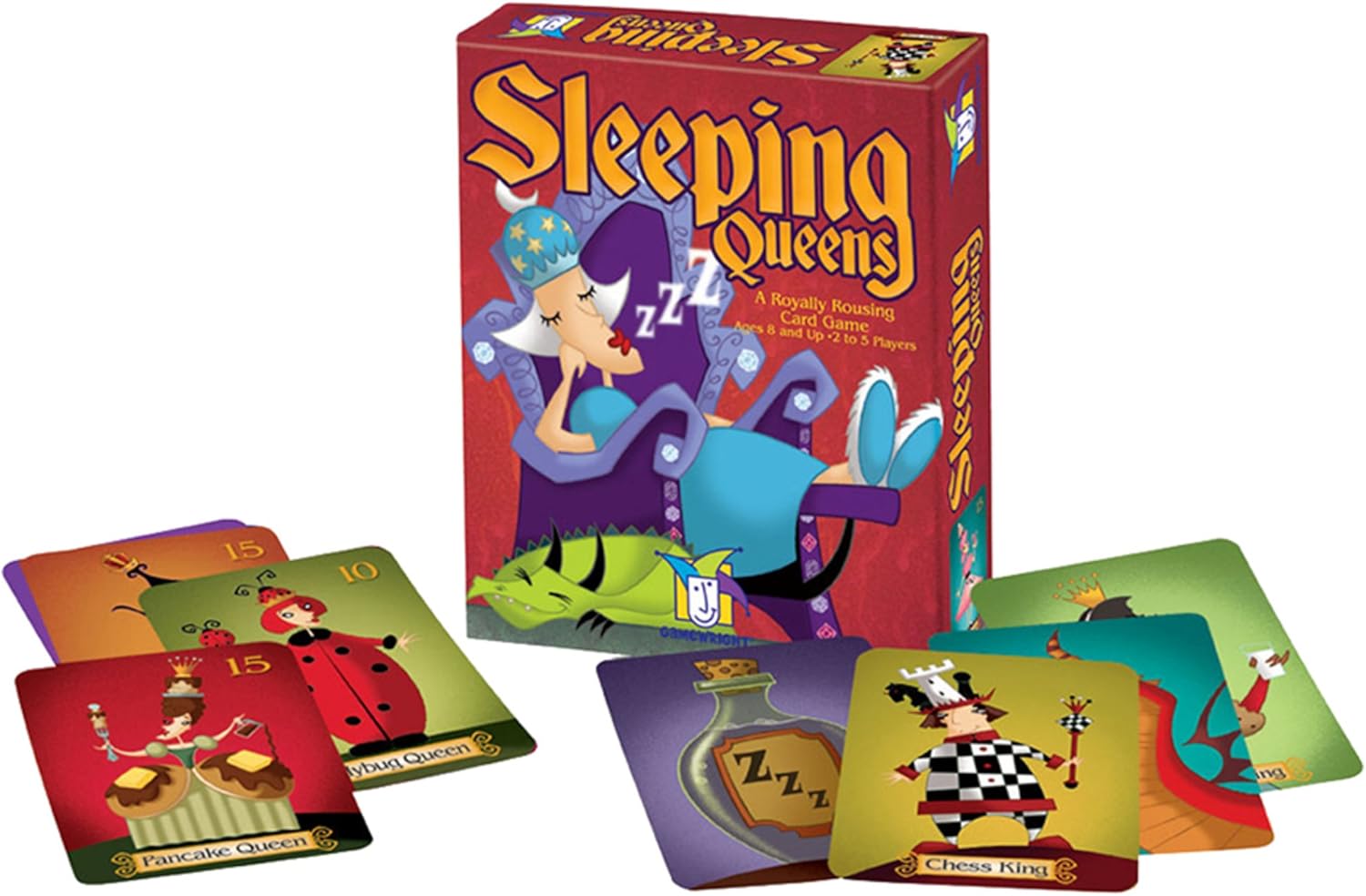
Sleeping Queens
A card game involving basic arithmetic. Created by a child and fun for the whole family!
★ Math for Love was not created by me, we just share part of our name, but I wish I had created their products. Everything is both visually and conceptually based and as my kids grow up, I plan to use all of their cards such as their multiplication flash cards.
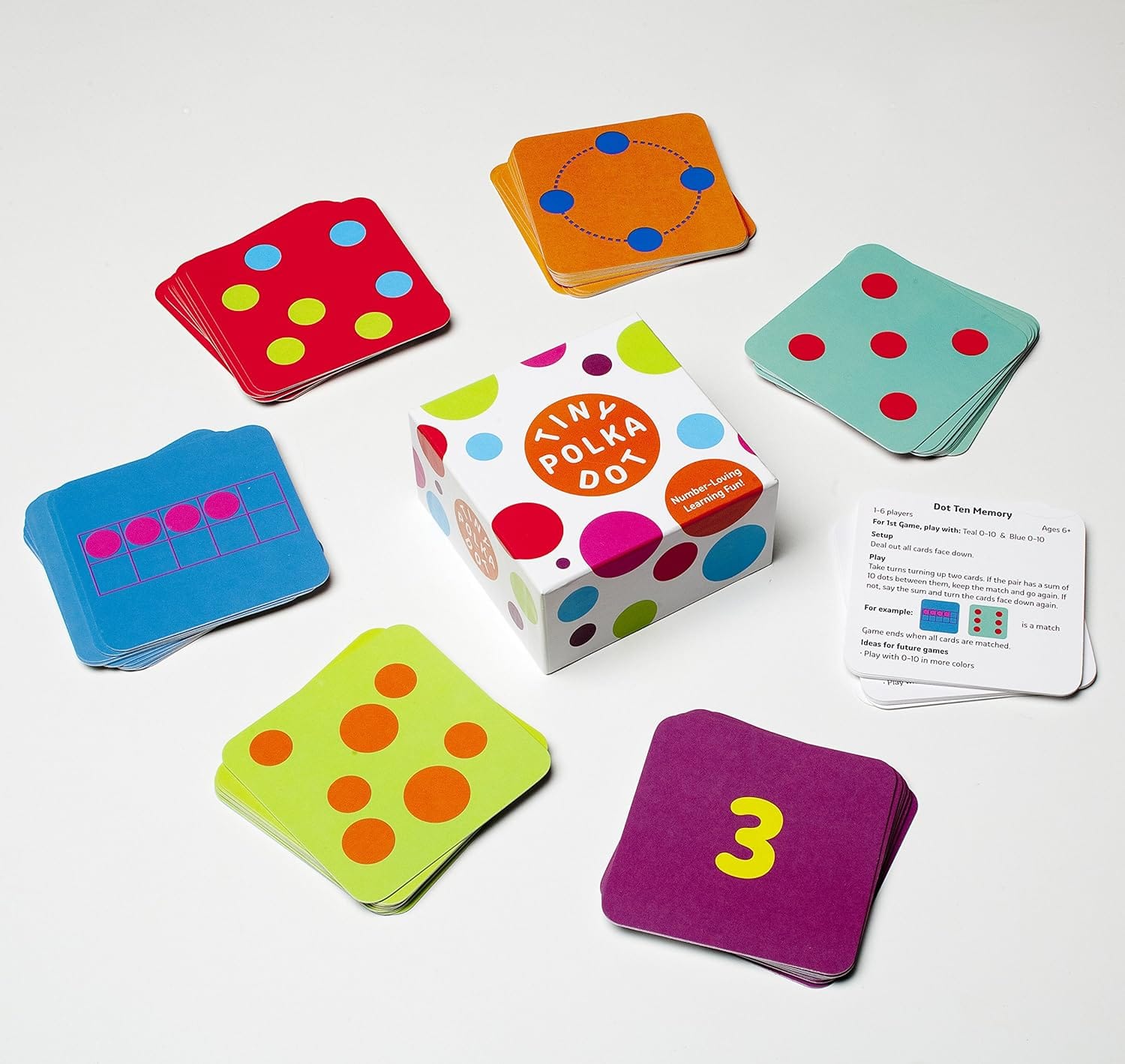
Math for Love: Tiny Polka Dot
Help your child develop numeracy skills from the beginning, seeing different configurations and combinations of numbers.

Addition Visual Flashcards
These flashcards are beautiful and help visual learners understand and learn their addition facts.

Multiplication Visual Flashcards
Lovely visuals to help build understanding and fact fluency at the same time.
★ "Regular" Flashcards, Triangle flashcards with full fact families (can find printable ones online for free or buy ones as seen below))
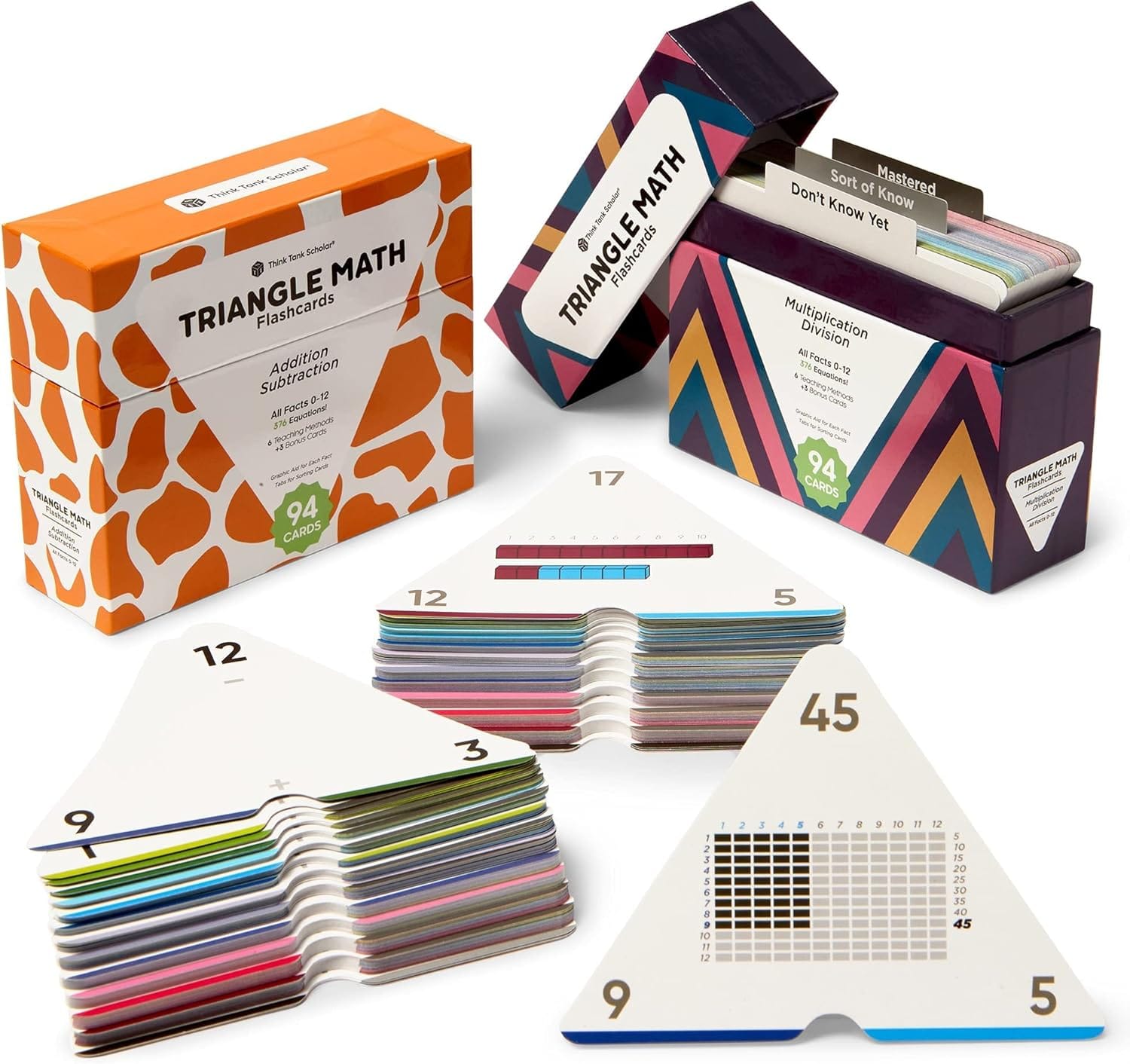
Triangle Math Flashcards
Help your child learn their facts through connecting then in their "fact families" in a fun, visual format.
★ Kakooma - You can practice online, or get the Power Pack bundle (seen below) which has a bunch of games, not just Kakooma. Adsumudi is a very similar concept to Kakooma and fun for those who enjoy playing with numbers. The game of 24 is also similar conceptually to all of these and is considered a math game classic.
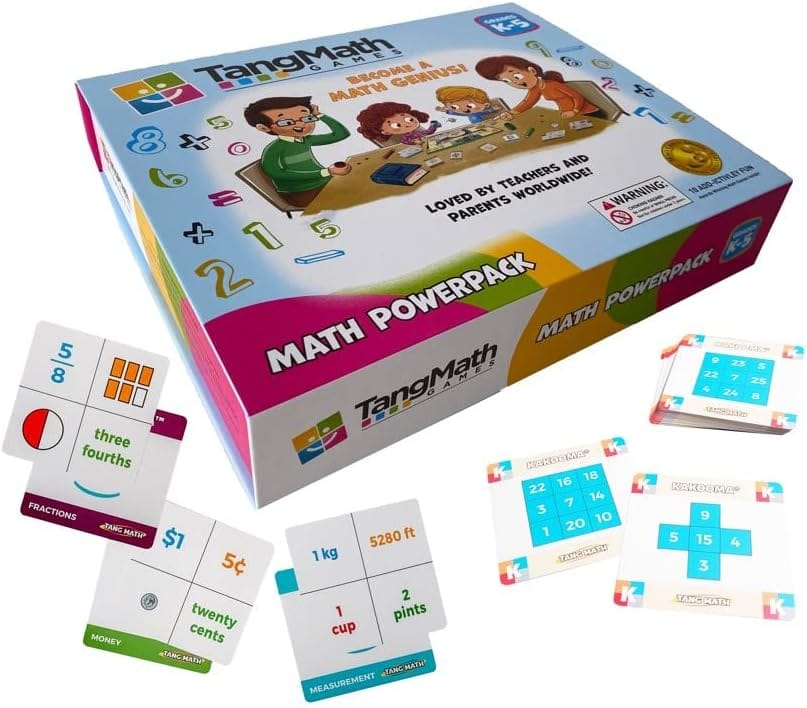
Kakooma Power Pack Bundle
A set of games for K-5th to help build numeracy and automaticity, fostering creative thinking while having fun!
★ KenKen math puzzles you can play online or always buy a book to work them out. There are varying levels of complexity.
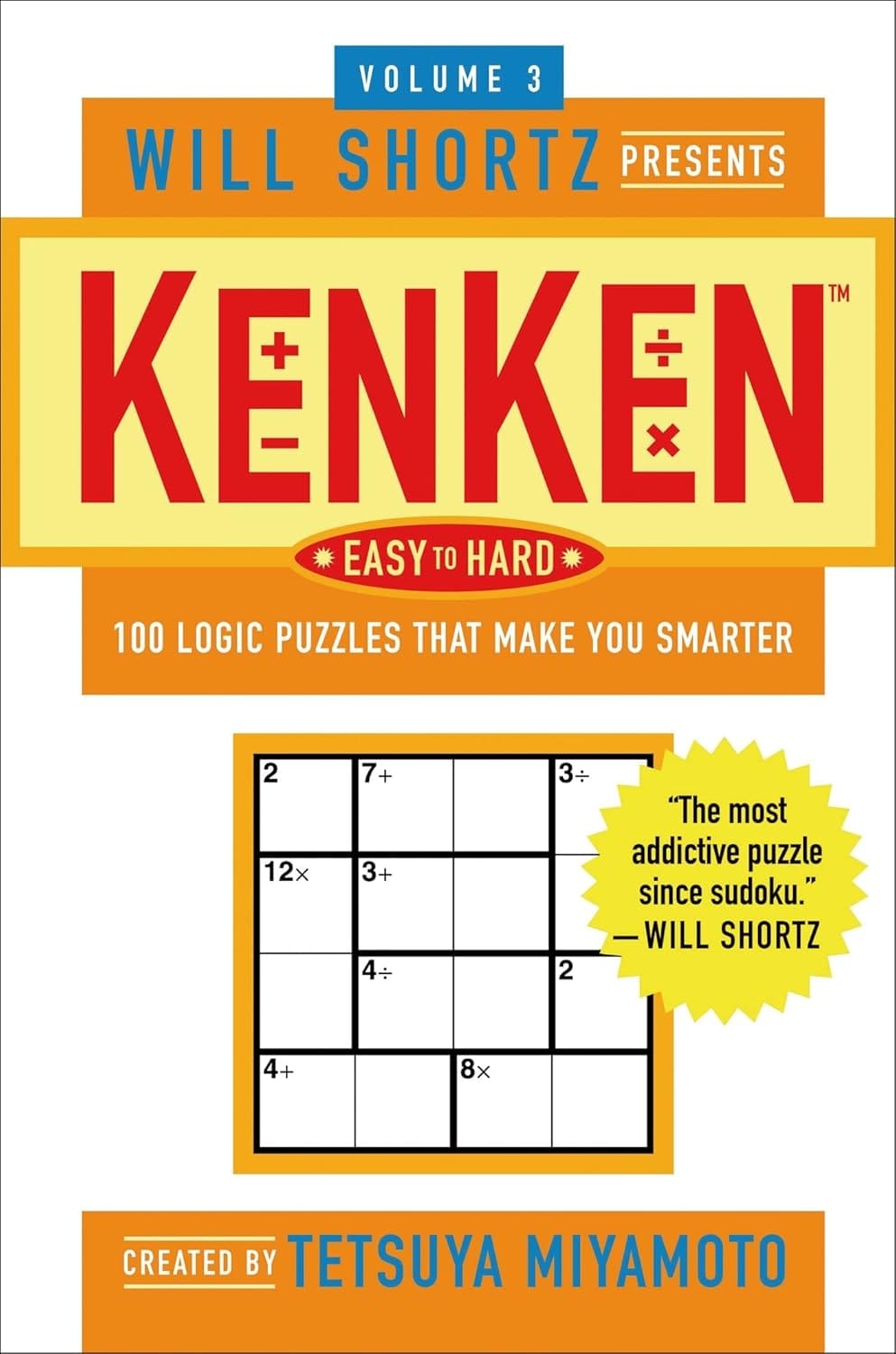
KenKen Puzzles - Easy to Hard
Puzzles of varying levels to help build flexible thinking with numbers.
Have any other suggestions? Please leave a comment to give all of us more ideas to help our children develop their fluency in fun and engaging ways!